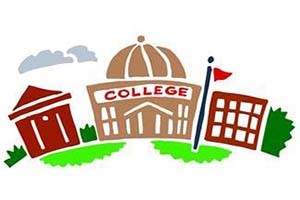Who Manages The Relationship With Area Employers? Hint: It’s Not Always Career Services
In our previous post in the series – “Closing The Perception Gap: Are Students Trained to Put Theory Into Practice?”- we briefly touched on the importance of advancing communications and partnerships with employers to improve the general perception about a college or universities ability to deliver on career preparation. The focus was primarily on strategies that enable students to put theory into practice. When you consider developing partnerships at the executive level, doors can open that lead to true innovation.
While internships, hands-on training and job placement opportunities are vitally important to hiring rates and alumnae career trajectories, this aspect of the employer to institution relationship is largely handled in career services departments and is almost entirely student-focused. If this is the only way the institution is engaging employers, it’s likely that significant longer-term growth strategies have been missed.
Especially important to regional public universities and small private colleges are the following questions. What local or regional challenges exist that your graduates may be highly qualified to resolve? Will they be able to develop specific skills or knowledge that give them the competitive advantage in the hiring process?
Put Market Research To Work
The Melior Group worked with a quasi-urban school district in helping them to develop and enhance partnerships with universities who, with some tweaking, could develop programs that would deliver top-notch teachers who were ready to step-in and work in the type of environment where the district is located. A true partnership, the school district worked directly with faculty to make a direct and significant positive impact on area schools.
Along the way, The Melior Group made an informed pivot in their research design and adjusted geographic parameters to discover that there were nearby rural area school districts that could also benefit greatly from the same innovative techniques. The graduates, armed with the know-how to handle challenges perceived to be urban would also be well suited to assist specific rural populations.
Original Innovation Serves A Second Purpose
Universities that are new to this type of partnership development will want to re-examine the relationships they currently have with area employers by proactively asking insightful questions. What are these employers looking for from a partnership with a university? What unique quality can the university offer an employer to make the relationship valuable?
Buy-in from the top of the administration – with accountability and responsibility at the Vice Presidential level – to develop healthy relationships with employers can significantly increase hiring rates, elevate the school’s image as an innovative partner and substantially improve the longer-term vitality of the community.
The Melior Group works with large research institutions, regional public universities and small private colleges to improve the perception of their schools’ effectiveness by discovering where gaps in perception exist and drilling into what strategic mix of programmatic, communication and partnership initiatives can allow institutions to more easily deliver on expectations.
To learn more about our work with colleges and universities, visit our Education page or please contact Elizabeth Foley at [email protected] / 215-545-0054 x111 or Linda McAleer at [email protected] / 215-545-0054 x104.



